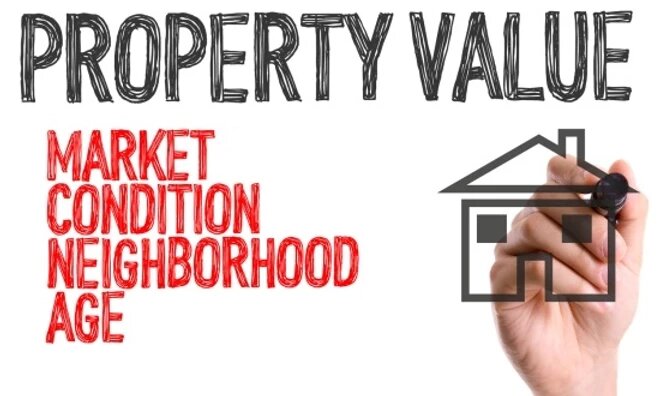With a regular maintenance plan and a reasonably funded reserve, each homeowner’s property condition will contribute to keep property values consistent with the neighborhood.

The primary purpose of a Homeowners Association is to preserve property values so owners can enjoy a consistent lifestyle quality. In an HOA subdivision, it’s important to keep grounds well maintained to help keep property values at a level relative to others in the neighborhood. Naturally, there are other factors that contribute to property values when compared to others in the area, property availability, the community’s economic wellness and number of foreclosures, but the aesthetics will make your development not just look well cared for (a positive reflection on the HOA) but a more livable place for all homeowners.
Deferred Maintenance Fiscal Considerations
A vital component in keeping a well-maintained property is having reasonably well-funded association reserves. Annual budgets will include items for deferred maintenance and it is vital to have reserve funds to carry through with budgeted projects. Deferred maintenance is the difference, for example, between tree trimming and gardening: tree trimming is generally done annually or semi-annually, while gardening is done monthly or even more frequently. Tree trimming would be considered deferred maintenance because the cost is significant and it may or may not be an annually budgeted item. If tree trimming has been budgeted, but you have a sewer blocked by tree roots, that “tree trimming” line item in the budget may be eaten up by the removal of the one tree, with trimming the remaining trees needing to be deferred to next year’s budget, or later the same year if reserve funding allows for it.
A well-funded reserve is generally between 70 and 100%+, though it is not unusual for many HOAs to have reserves between 30 and 70%. If many unexpected expenses begin to deplete the reserve funding, it may be necessary to have a one-time special assessment to help make the reserve reach a healthier level. Just like esthetic appeal and “comp” valuations in the neighborhood, the property value is affected by the level of reserve funding.
Depending on the size of your development or complex, deferred maintenance can mean a number of items that require repair and replacement over time:
- Lighting: street, common area, and pathways
- Landscaping, tree trimming, and removal
- Painting and exterior repairs
- Parking space and road striping
- Roadway repair: Speed bumps, stop signs, potholes
- Concrete maintenance: sidewalks, crack repair, elimination of uneven surfaces, pressure washing
- Recreational areas: Pool maintenance, spa and deck area, tennis courts, golf course maintenance, trail maintenance, rec room cleaning and maintenance
- Laundry room maintenance
- Roof maintenance and repair
- Plumbing: Common sewer line repair and replacement
- Security: Entry and parking lot gates, security systems and call boxes
The HOA property management company helps enforce standards when it comes to the outward appearance of homes, garden and patio areas as defined in the association’s covenants and restrictions. The property management company also keeps common areas maintained throughout, including entrances, median strips and roads, and in some cases aesthetic landscape and recreational features that require regular maintenance, such as lakes, walking paths and woodlands.
Addressing Disrepair
Essential solutions to addressing deferred maintenance are often overlooked because boards become reactive rather than proactive. It is vital for boards to adopt strategies not only during annual meetings but at every meeting that will put an HOA back on road to financial and aesthetic well-being.
Ultimately, because they represent the interests of all the owners, boards must seek agreement on HOA priorities. By keeping improvements and maintenance of the property in focus, the board helps ensure that all residents enjoy higher property value and better quality of life. When conflicts arise between boards, managers, and residentsthey generally center around setting priorities, especially when deferred maintenance involves specific properties, not the subdivision as a whole.
While it is crucial for the board to be able to juggle as many balls in the air as is humanly and fiscally possible, it’s also important to understand that individual homeowners’ deferred maintenance must be addressed because of initial discord that may erupt into legal action. So if your homeowner suspects termites are causing rain to filter through his exterior wall into the lower floor of his townhome, it’s imperative to have estimates done and a board vote is taken to correct the damage as soon as possible. Otherwise, the HOA may face a lawsuit for negligence and lack of action in responding to his needs – especially if action is deferred through several rainy seasons that compound interior damage (for which the homeowner can claim against the HOA insurance). Lawsuits (or liens) for any reason can also affect a property’s marketability to render it virtually unmarketable, hence unsellable, which makes resolution of outstanding maintenance issues even more critical. These deferred maintenance issues are why funding the reserve is vital; delaying or ignoring major deferred maintenance can create higher insurance premiums for the HOA, repair costs become higher with time, and the risk of lawsuit increases.
Create a Maintenance Plan
Even if the development or complex is not in a dire state of disrepair, a comprehensive maintenance plan should be part and parcel of the HOA annual budget. When faced with balancing reserve funding against considering maintenance needs, with a current, accurate reserve study, associations can plan for future expenditures by implementing a fiscally responsible funding plan – even without being 100% funded. This plan should include a percentage of the total of HOA dues and assessments being deposited to the reserve account. It may also mean that at the annual meeting, a dues increase must accompany the maintenance plan, to cover planned costs while adding to the reserve. While homeowners may be resistant to a dues increase (or assessment), with the quality of life in mind, it is a necessity for keeping the property appropriately maintained, and to keep property values at a level that corresponds to surrounding properties in the neighborhood. And that, ultimately, makes homeowners happy, despite the short-term belt-tightening required after dues increases.
As a homeowner, it behooves your HOA to maintain property condition to the best of its ability in order to keep property values consistent with the neighborhood. With a regular maintenance plan and a reasonably funded reserve, it can be done. Your home will not only keep its value but when the time comes for you to sell, it will also be the perfect fit for its next occupant.
